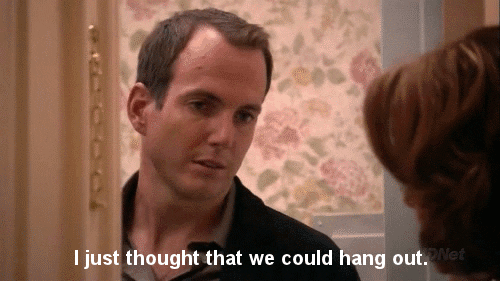- change is here*
- Posts
- 🧑🤝🧑 Is the future of well-being social?
🧑🤝🧑 Is the future of well-being social?
A look at the loneliness epidemic—from public health to your group chat
Morning Brew, Time Inc, LA Mag, and You
What’s the connection? beehiiv.
Our founders engineered the growth machine behind Morning Brew. They're now bringing that expertise to media juggernauts like TIME and LA Mag, helping them build best-in-class newsletters.
And all of that support, all of those tools, and all of that expertise is available to you. In short: no gatekeeping here.
When you work with us, just like Time and LA Mag, you’ll get:
The industry’s most powerful no-code website builder
Access to our ad network and sponsors like Nike and Netflix
Growth tools that help you scale with ease
Stop limiting your growth potential. Let proven experts working with the world’s biggest brands help you scale your content.
The latest in workplace mental health, resources, and relatable stories for the burnt out and languishing. Welcome to our new subscribers! We’re so happy you’re here*

We are in the midst of a loneliness epidemic. According to Dr. Vivek Murthy, disconnection is one of the most urgent public health threats today. And it’s not just a mental health issue—it’s showing up in our bodies: in heart disease, sleep loss, immune function, even early death.
Rates of friendship, marriage, and dating are all on the decline. More people are living alone. Many report fewer close connections than ever before. Technology keeps people constantly connected but rarely fulfilled. The result is a widespread absence of meaningful relationships.
That’s why researchers are focusing on social health—how supported and connected you are across all parts of life. Romantic relationships. Friendships. Chosen family. Coworkers. Community. Social connection supports regulation, resilience, and overall wellbeing.
Some health systems are adopting an approach called social prescribing—connecting people to art classes, community kitchens, nature walks, and other local activities as an extension of medical care.
Peer support groups, creative meetups, movement communities, spiritual circles—these are modern infrastructure for mental health. They offer consistency, shared experience, and low-pressure space for people to get to know each other.
The workplace also plays a significant role. A sense of belonging among coworkers reduces burnout, increases retention, and improves mental health. Work is often one of the few places adults regularly interact with people outside of the house. Without a culture of inclusion and mutual care, that opportunity is lost.
Loneliness is deeply human, but that doesn’t mean it resolves on its own. It takes work like everything else but connection, when it’s real and regular, can be transformative to our well-being.

Mental health and work are ever-evolving (it’s exhausting). here* is the latest.
AI tools are easy to talk to—but they don’t actually reduce loneliness. In fact, they may make it worse. This piece breaks down why tech can’t replace human connection. 👉 Read it on Fast Company
Social isolation is directly linked to higher risks of stroke, heart disease, and dementia. 👉 Read it on CBS News
From coworking spaces to social clubs, companies are leaning into “social wellness” as both a business model and a public good. 👉 Read it on Fast Company

There are only 24 hours in the day. here* are your weekly wellness shortcuts.
Connection requires the same consistency and care as exercise or sleep. See how social health is emerging and how you can put more effort into your relationships 👉 Read it on Wired
Feeling awkward about connecting? Try these simple but effective ways to deepen real conversation. 👉 Read it on Wondermind
Curious how well you’re socially connected? 👉 Take this quiz from the Berkeley Greater Good Science Center

here* are some jobs we think are actually good for your brain.
Flexible time off: If you love innovative tech, women’s health, and flexible work, check out this job with Oura —> Senior Product Manager, Women’s Health
Mental health mission: Our friends at Headstream Innovation are looking for two PR contractors to help spread the word on their mission to break barriers to youth mental well-being.
Growth opportunities: Two Chairs is expanding to cover patients in 19 more states! Check out their open job opps here.

Things we’re loving atm.
This viral video that turned a lonely author into a bestseller. Get his book here*
Robert Putman has been raising the loneliness alarm bells for decades. We love Bowling Alone published back in 2000, well before the pandemic or social media attentional takeover.
For a different look at loneliness and solitude, read The Art of Being Alone by Renuka Gavrani
That’s all for this week. We’ll be back in your inbox next Monday. Until then, you know the drill. Share this newsletter far and wide. Our collective mental health depends on it 😉
<3
here* fam






Reply